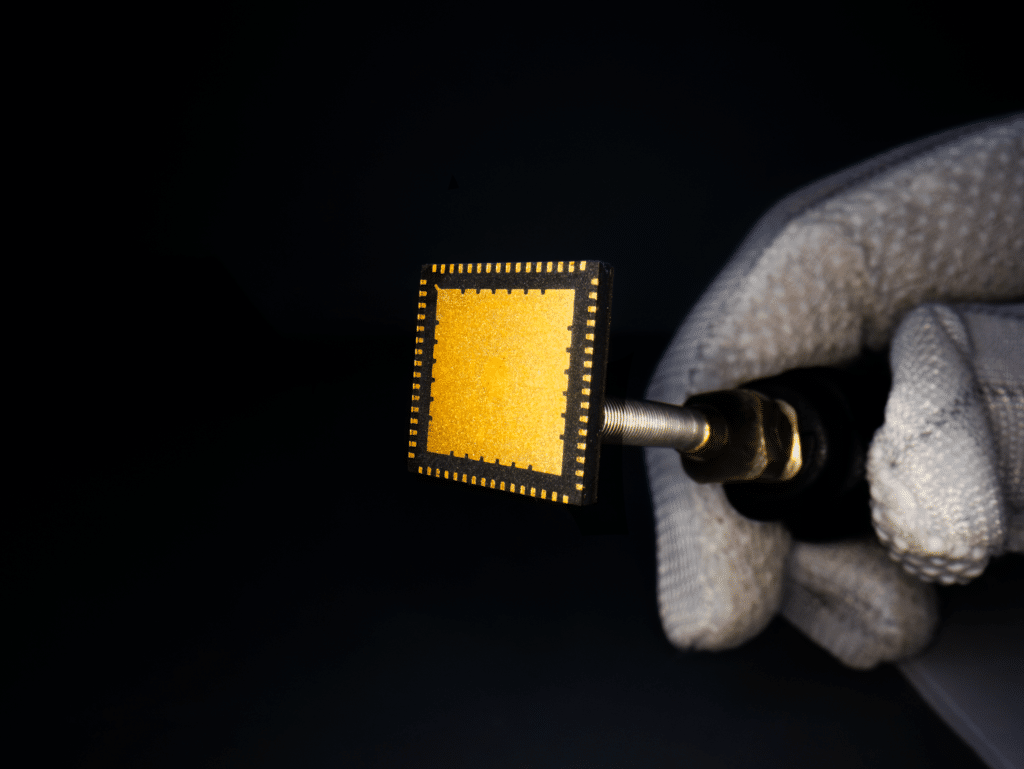The Chennai-based startup has completed the prototype fabrication of the IoT Microcontroller and will soon roll out the reference boards.
Semiconductor fabless startup Mindgrove Technologies is set to roll out India’s first 700 MHz high-performance microprocessor, Secure IoT, for connected devices, especially those requiring enhanced security at the chip level.
Out of the company’s first hundred prototypes, ten are already undergoing functional testing, and the remainder are set to arrive in the coming weeks.
With a tagline ‘designed in India, designed for the world’, co-founders T.R. Shashwath and Sharan Jagathrakshakan are targeting Indian designers and are currently engaged in high-level discussions with companies in the consumer appliances segment. “The market extends beyond the country’s borders, as many products are exported globally,” adds Shashwath.
Powered by the Shakti C-Class processor developed at IIT Madras, Secure IoT’s underlying RISC-V architecture comprises a compressed instruction set integrated with the main instruction set. This reduces instruction size while maintaining compatibility and interaction with other instructions.

“Given that users are likely to redesign their systems, we’ve opted for a 64-bit, 700 MHz frequency operation instead of the 32-bit low-frequency operation to ensure future-proofing for upcoming applications, prioritizing higher performance,” co-founder Sharan told EFY.
The chip combines its processing capabilities with a power consumption of under 200mW, making it ideal for many applications requiring extended battery life, including smart locks, watches, utility meters, thermal printers, fans, biometric modules, and more.
The startup offers extensive peripheral support for better connectivity and interoperability with its 96 functional I/O pins and various communication interfaces. “As a designer, I detest being forced to choose between peripherals due to multiplexing!” says Shashwath.
The startup has minimized multiplexing to include only PWMs, while everything else has dedicated I/O pins. “We offer four independent SPIs, two independent quad SPIs, three independent UART ports, and 32 GPIOs. Both quad SPIs are memory-mapped up to 512 megabytes each, facilitating high-performance microcontroller applications with extensive memory maps. This simplifies the design process for users, allowing for versatile module configurations,” elaborates Shashwath.
The chip’s design integrates on-board security features, including built-in crypto accelerators and FIPS-140-2 certified OTP and TRNG, ensuring end-to-end encryption and protection against potential security threats. “Our chip includes an AES 256 accelerator, RSA 2048, a dedicated one-time programmable memory separate from flash, and a pre-certified true random number generator essential for encryption. These security features were initially developed at IIT Madras, open-sourced, and later enhanced for deployment on our chip,” reveals Sharan.
The chip supports various operating systems and IDEs, including Zephyr, FreeRTOS, NuttX, Eclipse, and VSCode. “We currently don’t offer out-of-the-box support for commercial-grade OS like QNX, as we haven’t yet developed the capability to port them. However, if a customer requests support for QNX or any other OS, we’re open to collaborating as our silicon supports standard RISC-V extensions, making the porting process relatively straightforward,” explains Sharan.
The startup’s support extends beyond hardware and software, including evaluation boards, stamp modules, and reference designs for better integration and deployment.






